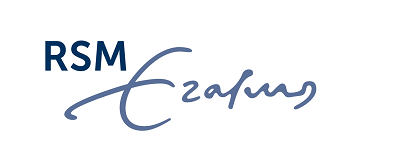- Governance
Ethical Organizations' Unethical Behaviour
RSM’s Professor Muel Kaptein explains how good people in good organizations slip into bad unethical practices
A recent study by Muel Kaptein, Professor of Business Ethics and Integrity Management at Rotterdam School of Management, Erasmus University (RSM), reveals eight forms of unethical practice that can arise in organizations, despite their best efforts to act ethically. Delivering a timely warning to business leaders, this research even considers if well-meaning attempts to impose ethical values on investment and consumption might be the cause of the problem.
We usually think of unethical behaviour emanating from toxic organizations—Enron as the prime example. Kaptein has used a different perspective and looked at how a good organization can facilitate employees’ unethical behavior; leading to the uncomfortable conclusion that the more ethical some organizations become, the higher is the likelihood of unethical employee behavior.
This surprising outcome is due to four forces that threaten the ‘good’ organization, which become stronger as it becomes more ethical—upward, downward, backward, and forward forces.
Upward force. This is about the expectation, in and around organizations, that it should become even more ethical. Its ethics should go ‘upward’.
Downward force. The second force is triggered by the belief that the better something is, the more tempting badness becomes.
Backward force. This is about reducing the investment in ethics, due to the belief that when something is good it will stay good with less resources. This force pressures the organization to go back to the time when it paid less attention to ethics.
Forward force. This force, in the opposite time direction, is about staying the same in the future, prompted by the belief that when something goes well it needs to remain well.
Each of these four forces is illustrated with two ‘effects’. Kaptein gives each of these effects a memorable nickname: gold digger, high-jump bar, retreating-cat, forbidden-fruit, cheese slicer, moving-spotlight, repeat-prescription, and keeping-up appearances.
Gold Digger effect—The more ethical the organization becomes the more it will be scrutinised for imperfections, the more will be found. Evaluators believing that an organization is never good enough—when it is actually ethical—can lead to unethical behavior by creating negative emotions among employees. (Upward force)
High Jump Bar effect—The more ethical an organization becomes, the higher the standards are set until they can no longer be met. Standards are set beyond the organization’s capacity to implement them successfully, potentially leading to a rise in unethical behavior. Furthermore, the frequent introduction of new standards can lead to standard erosion. (Upward force)
Retreating Cat effect—The more ethical an organization becomes, the more the oversight on the ethics of the organization decreases until this situation is visibly abused by employees. The more the evaluator ‘cat’ retreats, the more the ‘mice’ are tempted to behave unethically. (Downward force)
Forbidden Fruit effect—Research shows that, for some individuals, when organizations become more ethical, doing something that is not allowed becomes more satisfying, reasonable, and lucrative. As with the apple in the Garden of Eden, unethical behaviour cannot be resisted. (Downward force)
Cheese Slicer effect —The more ethical an organization becomes, the more it reduces its investments in ethics, thus making unethical behavior by employees more likely. (Backward force)
Moving Spotlight effect—As the focus is placed on what is least good now, what was once considered good becomes not good as a result. The attention being on the current issue that needs to be improved, focus is lost on what has been improved or on what has been insufficiently dealt with. (Backward force)
Repeat Prescription effect—The more ethical an organization becomes, the longer it continues with the same way of managing ethics. For as long as things are going well, there is no reason to change anything. This is like prescribing the same medicine for as long as the illness does not worsen, until the patient becomes resistant to it and the illness recurs. (Forward force)
Keeping-Up-Appearances effect—Organizations with a reputation for ethical values, may be tempted to hide unethical behavior to avoid stakeholder disapproval. If their people become less likely to report unethical incidents because the consequences may be too harsh, impression management or ethics washing can occur—breeding further bad behaviour. (Forward force)
Professor Kaptein’s study suggests that as well as being concerned about the usual suspects—poor attention to corporate values and organizational culture—as causes that stimulate employees to behave unethically, business leaders should be aware how safeguarding the ethics of an organization becomes more difficult and less effective when the organization becomes more ethical. They need to understand the dynamics at play, as described by Kaptein, how these evolve and how unethical practices stimulated by these eight negative effects can be countered or mitigated.
Motivation to address these issues is provided by the Ethics & Compliance Initiative, 2021 Survey. This shows that observed unethical behaviour by U.S. employees has remained relatively steady over the past 20 years—despite these being years of focus on ethics in business—with a similar result evident in many other countries. 49% of U.S. employees reported observing unethical behavior in their organizations. Bad behaviours include favoritism toward certain employees (35%), management lying to employees (25%), conflicts of interest (23%), improper hiring practices (22%), abusive behavior (22%), and health violations (22%).
…………………………………………………………………………………………………………….
One of Europe’s leading business schools, and ranked among the top three for research, RSM provides ground-breaking research and education furthering excellence in all aspects of management.
ARTICLES YOU MIGHT LIKE
VIDEO
WEBINAR RECORDING: Prof. Walid Hejazi, Andrea Barrack, and Susan McGeachie explore and debunk some of the enduring myths surrounding ESG
DEVELOPING LEADERS QUARTERLY MAGAZINE AND WEEKLY BRIEFING EMAILS


































